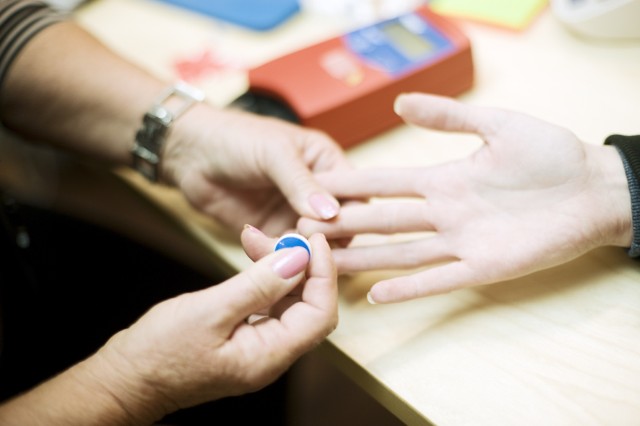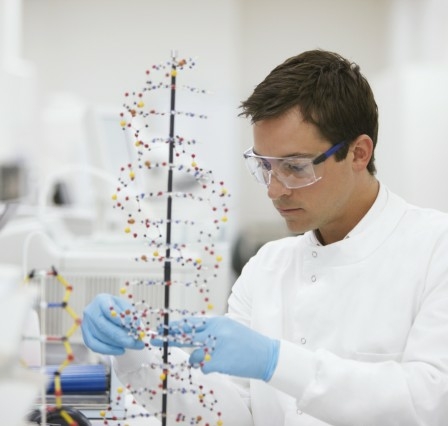Finnish biobanks have three advantages on their side in global competition: a strong public healthcare sector in their operating environment, a population that is eager to participate in medical trials, and the world’s best act in biobanks. In what ways can biobanks provide much-needed growth and new business to Finland?
On 1 November 2013, an YLE news headline stated that a Finnish invention made Bayer one of highest taxed companies (”Suomalaiskeksintö nosti Bayerin eniten veroja maksavien yritysten joukkoon” (Yle 1.11.2013). Bayer’s intra-uterine birth control system, Mirena, is one example of a Finnish innovation that prompted this international firm to make a seven-figure investment in Finland. It has paid off, and in the last six years, Bayer has doubled its exports from Finland. With the economy dragging and Finland adjusting to life after Nokia, news like this helps to lift spirits. But what do drug development, tax income, and biobanks have in common?
A biobank is a repository for storing human biological samples, accompanied with the sample donor’s health information. The main purpose of biobanks is to improve the population’s general state of health and develop new medical treatment solutions. However, human biological samples, such as tissue and blood samples collected in hospitals, are also of interest in pharmaceutical research. The samples’ biomarkers help researchers to understand the effects of various drugs on humans’ vital functions. The obtained information can be used to develop ever more personalised and effective treatments, or even to prevent diseases.
Options for commercialising biomarker data include diagnostics products and services. Such biobanking-based products and services are predicted to have a total global market value of more than USD 180 billion by year-end 2015 (source: BCC research). According to international estimates, the market would continue its strong growth at an annual rate of 10% or more, all the way to the mid-2020s. The increase in demand does not only stem from pharmaceutical companies’ product development, but from the individual health trend, which involves making use of genetic data in creating personalised health and well-being programmes for individuals.
Finland now has a unique opportunity to be a leading country in the business and science of biobanking. The secret to our competitiveness lies in a few factors that others will find difficult to replicate.
Firstly, we have a public healthcare system that covers the entire population, through which clinical and register data can be linked to biobank samples. This enables access to exceptionally large quantities of diverse, high-quality information on health and diseases. As a Nordic special feature, the Finnish gene pool is fairly isolated, which contributes positively to the research of hereditary diseases, for example. In addition, the reliability of the patient records that have been collected and itemised since the 1960s is among the highest by global comparison.
One way for biobanks to attract international investments to Finland is to create a unique research environment, unmatched in size and quality, which is designed to develop innovative new products. Realising this requires novel public-private partnerships. To help in the development process of such partnerships, we can look to our neighbouring country Sweden, where Karolinska Development, founded ten years ago, is helping in the commercialisation of the university’s innovations.
What about ethics and data protection? Because we are dealing with genetic and health information that is personal, ethics and effective data protection are very important issues. For this reason, the use of biological samples collected by hospitals for research purposes is naturally subject to authorisation: patients are asked for their permission to use their samples, and the permission can be revoked at any time. The collected samples are labelled and archived under an anonymous research code instead of a personal identity code. Finns have previously had a highly favourable attitude towards pharmaceutical research, and it would not be wise to betray their trust by not taking ethics and data protection issues seriously. An added security is the licensing process, in which all research projects wishing to collect samples have to undergo an ethical and scientific evaluation. This way, samples will not be used in ethically questionable projects.
The Bayer product that I mentioned in the beginning is only one example of Finnish expertise. A research environment based on biobanking might be a source of similar success stories and might provide a breeding ground for new, globally successful companies, on top of attracting international investments. For example, the export potential of innovations in medicine is calculated in billions on euros, and could provide a major boost for Finland’s economy, as broadcast by YLE (in Finnish).
As such, tissue samples stored in biobanks are not commercial products, nor should they be allowed to be. Rather, their commercial and scientific value should be derived from the sample collection method, and the competencies related to the integration and analysis of different types of information. They will help to make innovative progress in the field of health care, which will manifest itself as an even healthier tomorrow for our citizens, and will strengthen our national economy.
Sitra will organise an event on the business possibilities of biobanks, open to specialists and representatives of the media, on 19 August 2014.


Recommended